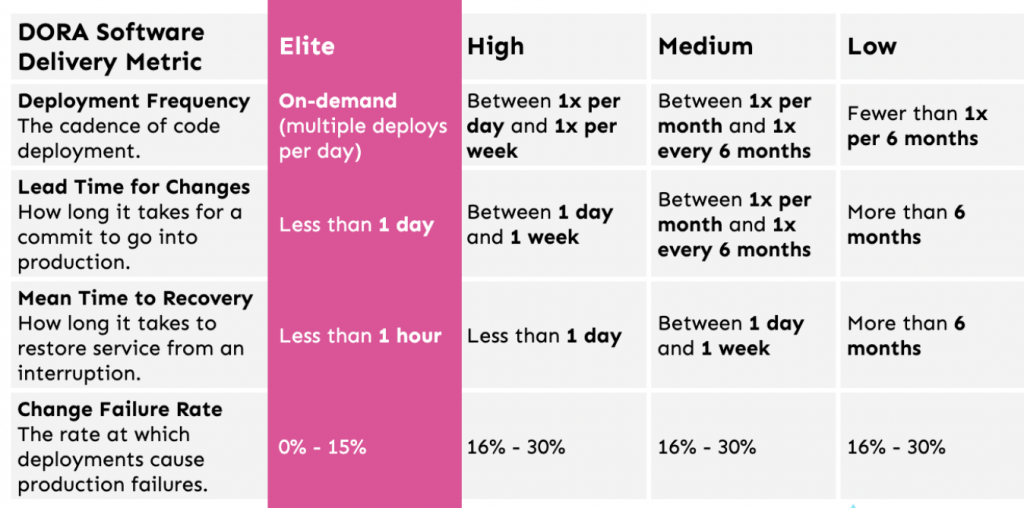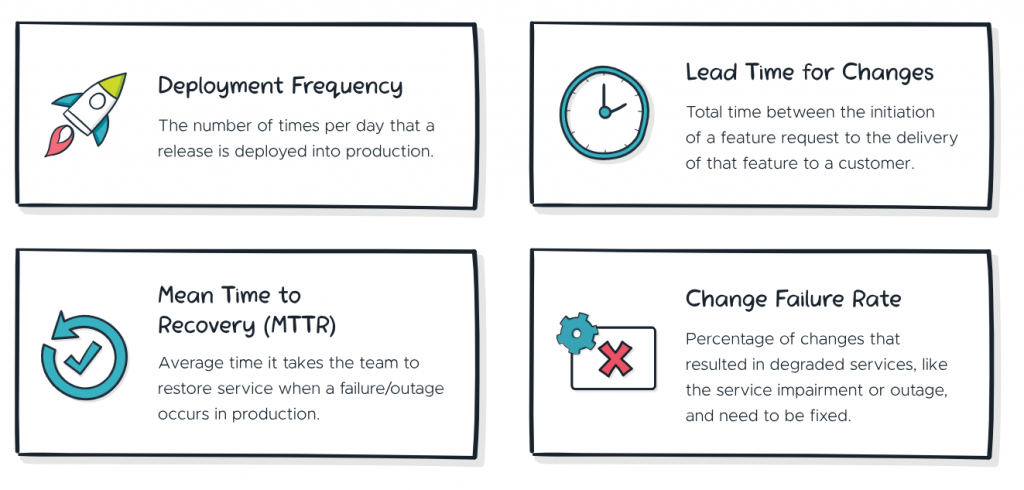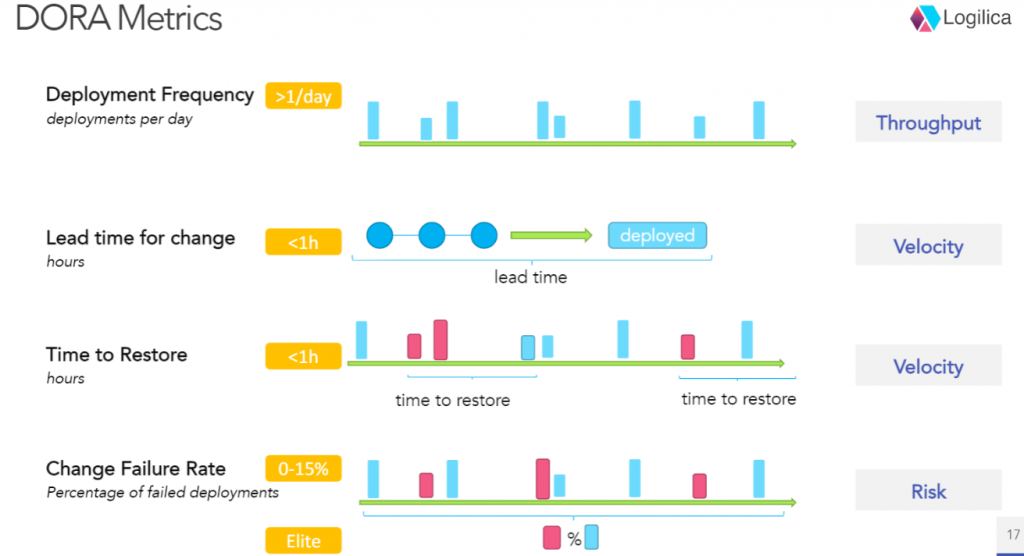
What is DevOps Research and Assessment?
DevOps Research and Assessment (DORA) refers to the research program initiated by Dr. Nicole Forsgren, Jez Humble, and Gene Kim that aims to understand high-performance IT and the factors that predict it. It is particularly known for its influence on the DevOps movement, which emphasizes collaboration, automation, continuous delivery, and reliability in the software development life cycle.
DORA has become synonymous with the annual “State of DevOps Reports” which the founders and their team have published. These reports are based on survey data from thousands of IT professionals and provide insight into the practices and capabilities that drive high performance in technology organizations. The core findings from DORA’s research have been influential in shaping how organizations think about software delivery and IT operations.

Key Contributions of DORA include:
- Four Key Metrics: DORA has identified four key metrics that are strong indicators of software delivery performance: Deployment Frequency, Lead Time for Changes, Time to Restore Service, and Change Failure Rate.
- Accelerate: The book “Accelerate: The Science of Lean Software and DevOps: Building and Scaling High Performing Technology Organizations” by Nicole Forsgren, Jez Humble, and Gene Kim, which presents the findings from years of DORA research.
- Capabilities and Practices: DORA’s research has identified capabilities and practices that differentiate high-performing teams from their peers, including technical practices, cultural norms, and architectural decisions.
- Assessment Tools: Tools to help organizations assess their performance against industry data, understand their strengths and weaknesses, and guide their improvement efforts.
The work of DORA has been foundational in quantifying the impact of DevOps practices on organizational performance, guiding companies in their DevOps transformations, and benchmarking their progress against industry standards.

DORA Metrices

DORA metrics are a set of four key metrics that are used to measure the performance of software delivery teams. The metrics are:
- Deployment frequency: This metric measures how often software changes are deployed to production. The higher the deployment frequency, the faster teams are able to release new features and bug fixes to customers.
- Lead time for changes: This metric measures the amount of time it takes for a code change to go from commit to production. The shorter the lead time, the faster teams are able to respond to customer feedback and market changes.
- Mean time to recovery (MTTR): This metric measures the average time it takes to restore service after a production failure. The lower the MTTR, the less downtime customers experience.
- Change failure rate (CFR): This metric measures the percentage of changes that cause production failures. The lower the CFR, the more reliable the software delivery process is.
DORA metrics have been shown to be correlated with higher organizational performance. For example, high-performing teams tend to have a deployment frequency of at least once per day, a lead time for changes of less than 24 hours, an MTTR of less than 1 hour, and a CFR of less than 0.1%.

Impact of DORA Metrics:
- Process Improvements: By monitoring these metrics, organizations can identify bottlenecks and inefficiencies in their development and deployment processes.
- Cultural Shift: Adopting these metrics often requires a cultural shift towards more transparency, shared responsibility, and a focus on continuous improvement.
- Quality and Performance: Organizations that track DORA metrics typically see improvements in the quality and performance of their software, as well as in the overall productivity of their development teams.
- Business Outcomes: Ultimately, these metrics are linked to better business outcomes, such as faster time to market, higher customer satisfaction, and better competitive advantage.


- Mastering Qualitative Research: The Role of Focus Groups in Data Collection - July 11, 2024
- What is robots ops? - July 10, 2024
- 5 Effective Online Learning Strategies for DevOps Professionals - July 4, 2024

